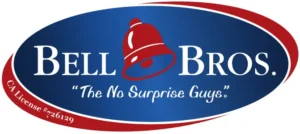![]() It’s the little things that stack up, and often you don’t even know what they are until they’ve already reached the ceiling. HVAC is pretty straightforward, but there are some weird things that aren’t intuitive (even to us!). In addition, there are some things that most homeowners won’t know to look for that can have a big effect on your system’s performance and lifespan. From when to change your filters to the bad effect that dog urine can have on a condenser, you may not realize the weird things that can harm your system until they’ve already done. If your HVAC system has started acting funny, this post covers a few of those little things to help you troubleshoot some of the most common HVAC problems we see in the field.
It’s the little things that stack up, and often you don’t even know what they are until they’ve already reached the ceiling. HVAC is pretty straightforward, but there are some weird things that aren’t intuitive (even to us!). In addition, there are some things that most homeowners won’t know to look for that can have a big effect on your system’s performance and lifespan. From when to change your filters to the bad effect that dog urine can have on a condenser, you may not realize the weird things that can harm your system until they’ve already done. If your HVAC system has started acting funny, this post covers a few of those little things to help you troubleshoot some of the most common HVAC problems we see in the field.
Old, Dirty Filters
Boy, we talk about filter changes a lot on this blog. But that’s because changing your filters is one of the most important pieces of regular HVAC maintenance, and it’s also one of the most neglected. Folks don’t change their filters very often and that can cause real problems for the system. Dirty or moldy filters don’t let air flow properly, and that means the system works harder to push air through the clogged-up filter. A system working harder is a system that won’t last as long as one that’s maintained properly.
So when is it time to change your filter? Well, during peak use — times when you’re using the system for more than an hour or two a day, every day for a month or more — you need to change your filters every 2-4 months. When you’re using your HVAC system less, we recommend filter changes every six months, especially if you don’t use your system very often. Energy-efficient homes will use the HVAC less, so if you upgrade your home, you may not need to change your filters as often as before.
Changing Filters During a Remodel
Besides regular maintenance, there are other times to change your filters. If you’re remodeling your home, you need to change your filters just like you would during times of peak HVAC use for as long as the remodel lasts. And at the end of any remodel, it’s important to change the filters — even if it was a job that lasted less than a month. Remodeling creates a lot of dust and that will clog up a filter quick. It’s important to stay on top of filter changes during remodels.
If you end up doing duct work, you should also change your filters. Even a simple duct-sealing job isn’t complete without a filter change; that will start you off fresh with new filters and sealed ducts. Similarly, if you clean mold or mildew out of your ducts you’ll want to finish the job with a filter change. Not only will mold and mildew clog up filters, they can also spread back into the system from your old filters.
Dog Urine
Did you know that dog urine can have a highly damaging effect on your condenser? If not, you should definitely take a look at your outdoor AC unit and make sure it’s in good shape. Dogs tend to pee on things like condensers, which is why we always make sure homeowners know about that when we install a new one or work on an existing unit. Urine can be very caustic, causing the condenser serious damage that’s often not repairable. If you have a dog and a condenser, train the dog to pee elsewhere or prevent them from using it as a bathroom by fencing it off.
Mold and Mildew
As you might imagine, mold and mildew can be very bad for your system. They may not seem like a big deal from the outside, but in addition to harming your health, they can also harm your system. Mildew can build up in the ducts, clog filters, and obstruct fans and other parts of the system. It’s also easy to have mold block condensate lines, which can lead to flooding and serious damage to the system as well as your home.
Strange Noises
Last but not least, small to large noises from the system are often the first sign of trouble. Your HVAC system is a lot like your car: you know what noises are normal and what noises are new! A new noise means a potential problem in both cases. Even if the noise does go away on its own (which it usually won’t), that doesn’t mean the problem is solved. In fact, these noises often develop into full-blown repair jobs or worst-case-scenario replacements if they aren’t addressed. Go with your gut — small noises need to be checked out by a pro.
Hopefully, this post is a refresher on some things and brings new information to the table for others. HVAC systems are funny (we should know better than anybody), and there’s no reason to be surprised by yours if you can help it. The most important thing you can do is pay close attention to your system and your home — and call a pro if you need one.


2 Responses